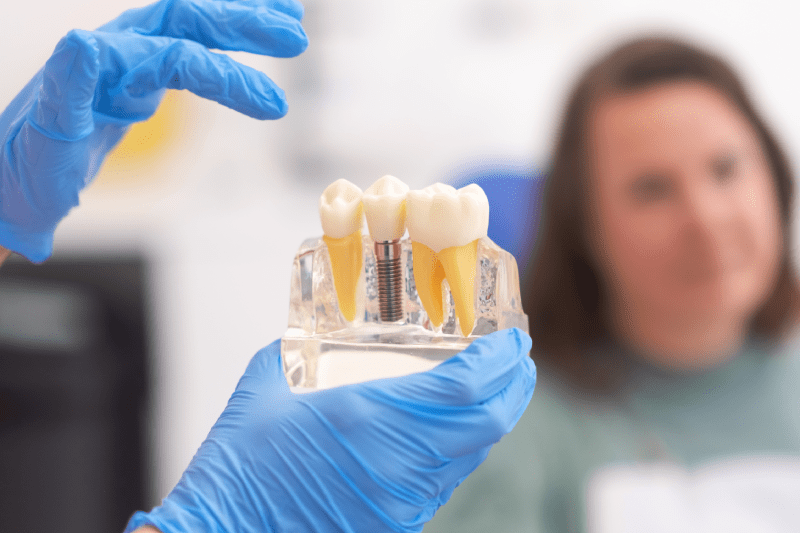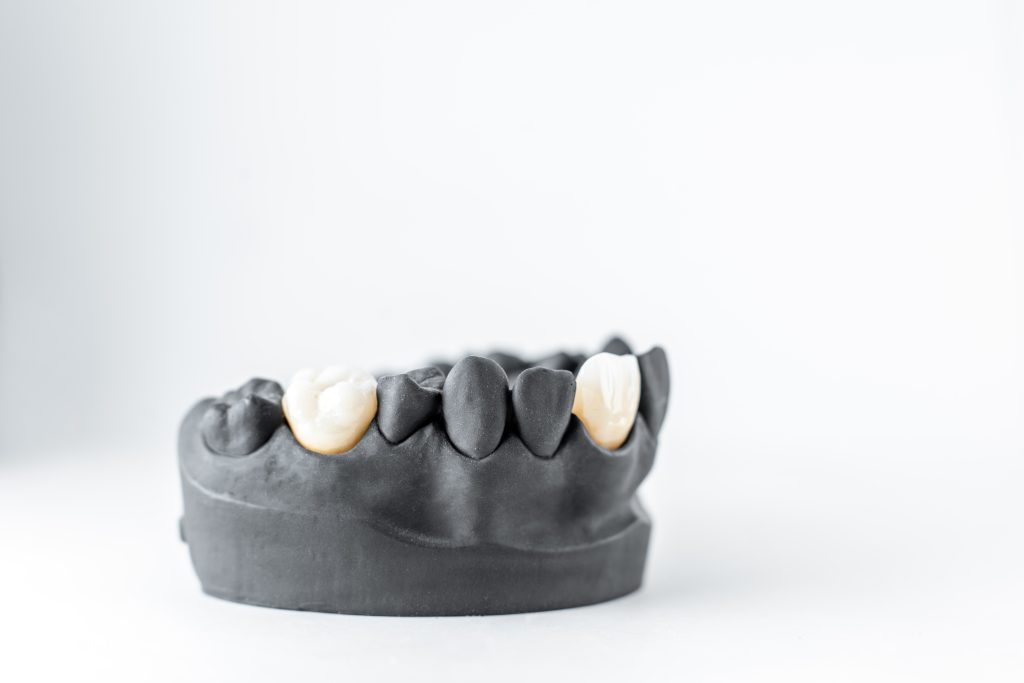What is a Dental Implant and How Does it Work?
A dental implant is a small screw made of titanium that is surgically placed into the jawbone to replace missing teeth. This screw functions like a natural tooth root. It fuses with the jawbone to create a strong and permanent foundation. This process allows for a prosthetic tooth (crown, bridge, or denture) to be placed on top. Implants are considered one of the most ideal solutions for individuals with tooth loss, both aesthetically and functionally.
What are the Reasons to Get Dental Implants in Sheffield?
Sheffield is home to many modern dental clinics with high standards. Clinics in the city generally provide high-quality services by using the latest technology and working with experienced surgeons. Dental implants restore chewing function, correct speech problems, and help preserve the facial structure by replacing missing teeth. For these reasons, getting an implant in Sheffield is a significant investment in both health and aesthetics.
How Do I Know If I Am a Candidate for Dental Implants?
Whether a person is a candidate for a dental implant depends on their overall oral and jaw health. The jawbone must be strong enough and have sufficient volume to support the implant. Additionally, there should be no chronic oral health issues like gum disease, and the patient’s general health should be suitable for the surgical procedure. Smoking and certain health conditions can negatively affect the success of the implant. Therefore, it is important to consult your dentist for a comprehensive examination and evaluation.
How Long Does the Dental Implant Procedure Take?
The dental implant procedure can be completed in different durations depending on the situation. The surgical placement of a single implant usually takes 30-60 minutes. However, a few months must be waited for the jawbone to heal and fuse with the implant (osseointegration). This process generally ranges from 3 to 6 months. Afterwards, the process of placing the prosthetic tooth is completed within a few weeks. The total process can be extended or shortened depending on individual factors.
Does the Dental Implant Operation Hurt?
The dental implant operation is usually performed under local anesthesia, so no pain is felt during the procedure. After the operation, mild pain and swelling may occur, but this can usually be easily controlled with pain relievers. Thanks to modern surgical techniques, most patients can return to their normal daily activities within a few days after the procedure. Most patients state that the implant operation is less uncomfortable than a tooth extraction.
How Much Do Dental Implants Cost in Sheffield?
The cost of dental implants in Sheffield varies depending on the complexity of the treatment, the quality of the materials used, and the clinic’s pricing policy. On average, the cost of a single implant can range from 1500 to 3000 Pounds. This price usually includes the implant screw, abutment (connecting piece), and crown. However, additional treatments (such as bone grafting) and consultation fees can be added to this price. Therefore, it is important to get a clear price quote before starting the treatment.
What Factors Affect the Cost of Implants?
There are many factors that affect the cost of an implant. The main ones are the number of implants required and the brand and quality of the implant used. If the bone density in the area where the implant will be placed is insufficient, additional surgical procedures such as bone grafting or sinus lifting may be necessary, which increases the total cost. In addition, the location of the clinic, the dentist’s experience, and the material of the prosthetic tooth used also play a decisive role in the price.
Are There Payment Plans for Implant Treatment?
Yes, many dental clinics in Sheffield offer various payment plans to help patients make the high cost of implant treatment more manageable. These plans generally allow the cost of the treatment to be spread over a certain period in interest-free or low-interest installments. By consulting your clinic, you can find out if they can create the most suitable payment plan for you and ease your financial burden.
Does Health Insurance Cover Dental Implants?
In the UK, the state health system (NHS) does not generally cover dental implant treatment, as this procedure is often considered a cosmetic or aesthetic treatment. However, in exceptional cases, if an implant is necessary due to trauma or congenital defects, partial support may be provided by the NHS. Private health insurance, on the other hand, may cover a part or all of the dental implant cost depending on the policy. It is recommended that you clarify this with your insurance company beforehand.
What Stages Does the Implant Procedure Involve?
The implant procedure generally consists of three main stages. In the first stage, your dentist evaluates your mouth and jaw structure and determines the area where the implant will be placed. The second stage is the surgical placement of the implant into the jawbone. In the third stage, after the implant has fused with the bone (osseointegration), the abutment and permanent prosthetic tooth (crown) are attached to the implant. The entire process progresses with regular check-ups.
What is the Cost of a Single Dental Implant?
The cost of a single dental implant is generally considered the lowest implant treatment cost. This cost usually includes three main components: the implant screw itself, the crown (artificial tooth), and the abutment that connects the two. Prices among clinics in Sheffield vary according to the implant brand used and the quality of service the clinic offers. On average, this cost ranges from 1500 to 3000 Pounds. It may be beneficial to get quotes from more than one clinic for a net price.

How Do Prices Change for Multiple Dental Implants?
When multiple dental implants are needed, the total cost naturally increases, but it is not usually a multiple of the cost of a single implant. Clinics may offer more affordable package prices for multi-implant treatments. For example, a bridge to be placed on two implants may be more affordable than the cost of two separate implants and two separate crowns. This situation varies depending on the scope of the treatment and the pricing policy of the clinic.
What is the All-on-4 Implant System and What is its Price?
All-on-4 is a revolutionary implant technique for patients who do not have sufficient density in their jawbone. In this method, a full dental prosthesis is fixed on four implants placed in the jaw. In this way, patients can have fixed teeth in a single session. All-on-4 costs in Sheffield are higher than the cost of a single implant due to the complexity of the procedure. Prices can start from 7000 Pounds and go up to over 15,000 Pounds, which varies according to the clinic and the patient’s condition.
What Should I Consider When Choosing an Implant Clinic in Sheffield?
The most important factors to consider when choosing an implant clinic in Sheffield are the dentist’s experience and clinical references. Choosing a dentist who is specialized in implantology and has certificates in this field increases the success of the treatment. The clinic’s technological equipment, the implant brands used, and hygiene standards should also be taken into consideration. In addition, reviewing the comments and experiences of previous patients can help you make the right decision.
What is the Success Rate of an Implant?
The success rate of dental implant treatment is quite high. In general, with good oral hygiene and proper treatment planning, the success rate is over 95%. The success of the implant depends on factors such as the patient’s general health, whether or not they smoke, the bone density of the area where the implant is placed, and the dentist’s experience. In case of failure, the implant is usually removed from the jawbone and the implant can be re-applied after the area has healed.
How Should Post-Implant Care Be Done?
Post-implant care is vital to extend the life of the implant. Like natural teeth, implants should be cleaned with regular brushing, flossing, and mouthwash. Special implant brushes and interdental brushes can be used to protect the health of the gums around the implant. In addition, the condition of the implant and overall oral health should be monitored by going to regular dentist check-ups. Good care reduces the risk of peri-implantitis (inflammation around the implant).
What is the Lifespan of an Implant?
A well-cared-for dental implant can last a lifetime. The implant itself is made of titanium, so it is very durable and does not show wear and tear over time. However, the prosthetic tooth (crown) and abutment placed on the implant can wear out like natural teeth and may need to be replaced after about 10-15 years. This depends on how faithful the patient is to their oral hygiene, chewing habits, and regular check-ups.
Are There Any Side Effects of Getting a Dental Implant?
The most common side effects after dental implant surgery are mild swelling, bruising, and pain in the procedure area. These usually go away on their own within a few days or can be controlled with painkillers. Rarer but more serious side effects include infection, nerve damage, and failure of the implant to fuse with the jawbone. These risks can be minimized with correct surgical technique and good oral hygiene.
Can Patients with Bone Loss Get Implants?
Yes, patients with bone loss can also get implants. The jawbone can melt over time after missing teeth are extracted. In this case, bone grafting (bone powder) or bone augmentation procedures are applied to ensure that the implant is placed securely. These additional procedures ensure that there is sufficient bone volume for the implant. Such treatments are critical for the long-term success of the implant. They can increase the cost and duration of the treatment.
What is Bone Grafting (Bone Powder) and When is it Necessary?
Bone grafting is a surgical procedure applied when there is insufficient bone volume or density in the area where the dental implant will be placed. In this procedure, bone material (bone powder) obtained from the patient’s own body, another person, or synthetically is placed in the implant area. The purpose of the bone graft is to create a solid foundation that will allow the implant to stand stable. It may take several months for the graft to fuse with the bone.
How Long Does the Post-Implant Healing Process Take?
The post-implant healing process usually includes the stages of healing of the area where the implant is placed and the fusion of the bone with the implant (osseointegration). This process can range from 3 to 6 months depending on individual factors. Swelling and mild pain are normal for the first few days. During this period, adhering to the dentist’s advice (eating soft foods and paying attention to oral hygiene) speeds up the healing process and prevents possible complications.
What is the Difference Between a Dental Implant and a Bridge?
A dental implant and a bridge are two different treatment methods used to compensate for missing teeth. A dental implant is a permanent solution placed in the jawbone that acts as an independent artificial root. A bridge, on the other hand, is a prosthesis that relies on the adjacent teeth on either side of the missing tooth and requires these teeth to be ground down. An implant is a more conservative option as it does not damage the adjacent teeth.
What are Mini Implants and Who are They Suitable For?
Mini implants are titanium screws with a smaller diameter than standard implants. They are generally used to increase the stabilization of dentures. They can be a good alternative for patients with very little jawbone volume or who are not suitable for standard implant surgery. The placement of mini implants is a less invasive procedure and the healing process is faster, but they may not be as durable as standard implants against chewing forces.
What are the Types of Prosthetics Placed on Dental Implants?
The prosthetics placed on implants vary according to the number of missing teeth and the patient’s needs. The most common is a porcelain crown placed on a single implant. For multiple missing teeth, dental bridges supported by two or more implants can be used. For a completely toothless jaw, fixed prosthetics or systems such as All-on-4 may be preferred. These prosthetics look and function like natural teeth.
Which is the Best Implant Clinic in Sheffield?
Determining the best implant clinic in Sheffield varies according to personal needs and expectations. However, among the things you should consider when making a choice are the clinic’s expertise in implantology, technological infrastructure, hygiene standards, and patient reviews. Choosing clinics that are members of the British Dental Association (BDA) or similar professional organizations can provide a guarantee in terms of service quality. It is recommended that you get consultation from more than one clinic before making a decision.
What Should Be Considered Before Starting Implant Treatment?
Before starting implant treatment, a comprehensive examination and evaluation should be done. During this evaluation, the condition of the jawbone, gum health, and your general health history are examined. It is important to inform your dentist about smoking, diabetes, or other chronic diseases. Do not hesitate to ask all your questions about the risks, benefits, cost, and process of the treatment and request a clear treatment plan.
What Type of Anesthesia is Used for Implant Procedures?
Dental implant procedures are usually performed under local anesthesia. This means that only the area to be treated is numbed, so the patient remains awake during the procedure but does not feel any pain or discomfort. In more complex situations or when multiple implants are to be placed, some clinics may also offer sedation or general anesthesia options. The type of anesthesia is decided by considering the patient’s comfort and the scope of the procedure.

What Materials are Implant Teeth Made Of?
Dental implants are generally made of titanium, which is biologically compatible and easily accepted by the body. Titanium forms a strong bond with the jawbone, creating a long-lasting foundation. The prosthetic teeth (crowns) placed on the implant are usually made of materials such as porcelain or zirconium. These materials mimic the color and translucency of natural teeth, providing an aesthetic appearance and supporting chewing function.
Can Dental Implant Treatment Be Applied at Any Age?
There is no upper age limit for dental implant treatment; adults of any age who are in good general health can receive this treatment. However, since the jawbone where the implants will be placed must have completed its development, implants are generally not performed on individuals in adolescence. The general health condition and oral structure are more important determinants than age. The dentist decides whether elderly patients with chronic diseases are suitable for implant surgery.
Can I Get a Loan for Implant Treatment?
Yes, getting a loan for dental implant treatment is an option. Patients who have difficulty covering the cost of the treatment can get a health loan from banks or financial institutions. In addition, some dental clinics offer loan or payment plan options directly through the financial companies they are affiliated with. It is important that you discuss these options with your clinic and your bank to get detailed information before starting the treatment.
How is the Cleaning of Implant-Supported Prosthetics Done?
The cleaning of implant-supported prosthetics should be done with daily brushing and flossing, similar to the cleaning of natural teeth. Special implant brushes or soft-tipped brushes can be used to ensure your toothbrush reaches between the implant and the gum. Keeping the area around the implant clean prevents bacterial accumulation and reduces the risk of peri-implantitis (inflammation around the implant). Interdental brushes and mouthwashes recommended by your dentist also support cleaning.
Do Implant Teeth Feel Like Real Teeth?
Dental implants have a very strong structure because they are fused with the jawbone and can feel like real teeth. The prosthetic teeth placed on the implant look like natural teeth and fully restore chewing and speaking functions. Most patients quickly adopt the comfort and confidence provided by implants. With proper treatment planning and application, implants offer a feel and appearance that is indistinguishable from your natural teeth.
What Happens in Case of Dental Implant Treatment Failure?
In case of dental implant treatment failure, the implant has usually not fused with the jawbone properly. This can cause the implant to become loose or move. In this case, the dentist surgically removes the implant. A waiting period is required for the jawbone to heal, and the area is re-evaluated. If there is sufficient bone volume for a second attempt, a new implant can be placed. The failure rate is quite low.
Is Getting an Implant in Sheffield More Advantageous Than in Other UK Cities?
Sheffield is generally in a more competitive position in terms of dental implant prices compared to other major UK cities. Compared to the high costs in metropolitan areas like London, it is possible to find the same quality of service at more affordable prices in Sheffield. In addition, the city is home to many experienced dentists specializing in implantology, which enriches the treatment options. These factors make Sheffield an attractive option for implant treatment.
Is There a Consultation Fee Before Starting Implant Treatment?
Most dental clinics in Sheffield may charge a fee for the initial consultation appointment before starting implant treatment. This fee covers the time and effort required for the dentist to perform an oral examination, evaluate X-rays or other imaging tests, and create a personalized treatment plan. Some clinics, however, may offer this consultation appointment free of charge. Clarifying this with the clinic beforehand will prevent you from encountering unexpected costs.



